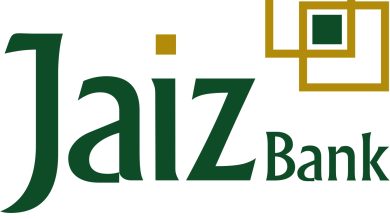Early Retirement: A Guide to Achieving Financial Freedom Sooner
Early Retirement: A Guide to Achieving Financial Freedom Sooner
Early Retirement: A Guide to Achieving Financial Freedom Sooner
Early retirement is a dream shared by many individuals who desire financial freedom and the flexibility to pursue their passions.
While it may seem like a distant goal, with proper planning and smart financial decisions, early retirement can become a reality.
In this blog content, we will delve into the concept of early retirement, address frequently asked questions, and provide comprehensive answers to help you embark on your journey towards achieving financial independence ahead of schedule.
What is Early Retirement and Why is it Appealing?
Early retirement refers to the act of leaving the workforce and enjoying financial independence at a younger age than the traditional retirement age. It appeals to individuals seeking greater freedom, the opportunity to pursue hobbies, travel, spend time with family, or start a business. It provides a chance to enjoy life on your terms while you’re still relatively young and healthy.
How Early Can I Realistically Retire?
The answer to this question varies depending on individual circumstances, goals, and financial resources. Early retirement can be achieved as early as your 40s or 50s, but it requires careful planning, disciplined saving, and investment strategies. The key is to determine your desired retirement lifestyle, assess your financial needs, and create a realistic timeline for achieving your early retirement goal.
What Steps Can I Take to Achieve Early Retirement?
To achieve early retirement, you need a proactive approach. Start by assessing your current financial situation, creating a budget, and identifying areas where you can save more. Increase your savings rate, explore investment opportunities, optimize your tax strategies, and consider diversifying your income streams. It’s also crucial to continuously educate yourself about personal finance and seek professional guidance when necessary.
How Much Money Do I Need to Retire Early?
The amount of money needed for early retirement depends on various factors such as your desired lifestyle, anticipated expenses, healthcare costs, and inflation. A general rule of thumb is to aim for a retirement savings goal of 25 to 30 times your annual expenses. However, it’s essential to work with a financial advisor who can help calculate your specific retirement savings needs based on your individual circumstances.
What Are the Potential Challenges of Early Retirement?
Early retirement presents some challenges, including a longer retirement period to fund, potential healthcare expenses, the need to ensure your money lasts throughout retirement, and the potential for unforeseen financial setbacks. Adequate planning, building an emergency fund, securing health insurance coverage, and having contingency plans in place can help mitigate these challenges.
How Can I Invest My Money to Support Early Retirement?
Investing plays a crucial role in supporting early retirement. Consider a diversified investment portfolio that aligns with your risk tolerance and goals. Utilize tax-advantaged retirement accounts, such as IRAs and 401(k)s, and explore other investment options such as real estate, index funds, and dividend-paying stocks. Consult with a financial advisor to develop an investment strategy tailored to your early retirement objectives.
Is It Necessary to Downsize or Change My Lifestyle for Early Retirement?
Downsizing or adjusting your lifestyle can be beneficial when planning for early retirement. Reducing housing costs, minimizing discretionary expenses, and prioritizing needs over wants can help increase savings and accelerate your journey towards financial independence. Evaluate your spending habits and consider ways to live more frugally without sacrificing your quality of life.
What Role Does Health Insurance Play in Early Retirement?
Health insurance is a critical aspect of early retirement planning. Before leaving employment, research and explore healthcare coverage options such as COBRA, the Affordable Care Act (ACA) marketplace, or retiree health benefits if available. Assess the costs, coverage, and potential subsidies to ensure you have adequate healthcare coverage during your early retirement years.
Should I Pay Off Debts Before Considering Early Retirement?
Paying off high-interest debts, such as credit card debt or high-interest loans, is generally advisable before considering early retirement. However, low-interest debts like mortgages or student loans may be managed strategically based on your financial situation. Evaluate your debts, interest rates, and consider the impact of debt payments on your retirement savings.
How Can I Ensure a Secure Financial Future after Early Retirement?
To ensure a secure financial future after early retirement, continue monitoring your investments, adjusting your portfolio as needed, and maintaining an emergency fund. Regularly review your retirement plan, assess your spending, and make adjustments when necessary. Consider working part-time or pursuing income-generating hobbies to supplement your savings if required.
How Do I Deal with Social and Emotional Aspects of Early Retirement?
Early retirement brings social and emotional considerations. Prepare for potential lifestyle changes, shifts in social circles, and the need for a sense of purpose and fulfillment. Seek opportunities to stay engaged, pursue new hobbies, join social groups, or consider volunteer work to maintain social connections and a sense of fulfillment during your early retirement.
Is Early Retirement Suitable for Everyone?
Early retirement is not suitable for everyone. It requires careful planning, disciplined saving, and realistic expectations. Factors such as financial stability, personal goals, health, and individual circumstances play a significant role. It’s crucial to evaluate your own situation and consult with financial professionals to determine if early retirement is a viable and sustainable option for you.
Conclusion
Early retirement is an enticing goal for those seeking financial freedom and a life filled with purpose. By understanding the key considerations, creating a robust financial plan, and taking proactive steps towards achieving early retirement, you can make this dream a reality.






